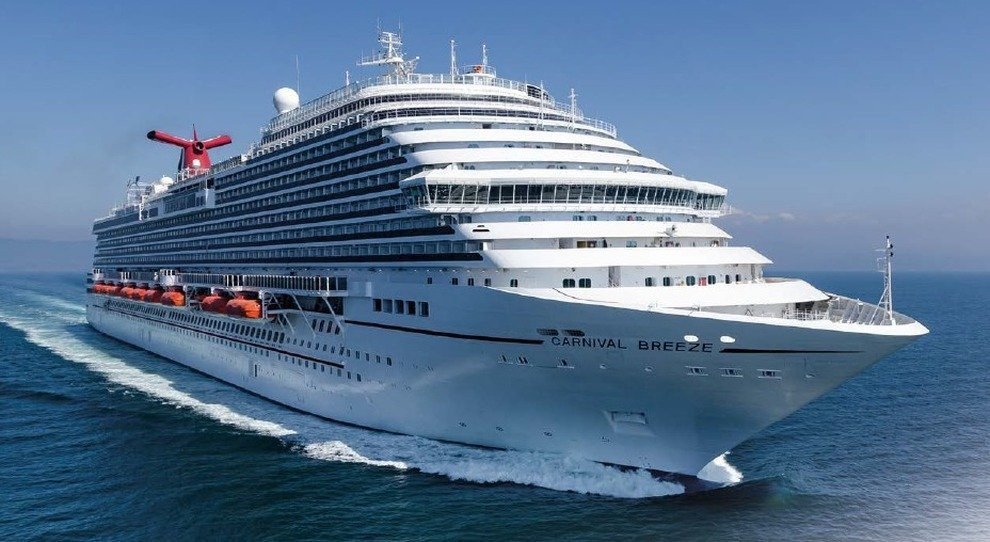MSC, Fincantieri, and Snam partners for world’s first maritime H2-powered cruise ship
MSC Cruises, Fincantieri, and Snam have announced the signing of a Memorandum of Understanding (MoU) to mutually establish the conditions for the design and construction of what would become the world's first oceangoing hydrogen-powered cruise ship.
As per the press release, MSC Group, Fincantieri, and Snam have merged forces to primarily carry out a study that will evaluate the feasibility of designing and building "the world's first ocean-going cruise ship powered by hydrogen."
MSC Group said that the ship would permit zero-emissions operations in specific areas and the development of the related hydrogen bunkering infrastructure.
Green hydrogen can be produced without fossil fuels, using renewable energy to split water in a process called electrolysis and can therefore be emissions-free on a full lifecycle basis, MSC said. It can be used to generate electrical power through a fuel cell, emitting only water vapor and heat. This type of 'green' hydrogen holds great potential to contribute to the decarbonization of the shipping industry, including cruising, whether in its pure form or as a hydrogen-derived fuel.
"As a company that has long made environmental sustainability its focus, we want to put ourselves at the forefront of the energy revolution for our sector, and hydrogen can greatly contribute to this. However, today production levels remain low and hydrogen fuel is still far from being available at scale. With this project, we're taking the lead to bring this promising technology to our fleet and the industry while sending the strongest possible signal to the market about how seriously we take our environmental commitments. As we advance with the development of the maritime technology required, we will also see that energy providers take note and ramp up production to unlock this and that governments and the public sector step in to provide the necessary support for a project that is critical to the decarbonization of cruising and shipping," said MSC Group's Executive Chairman of the Cruise Division, Pierfrancesco Vago.
The CEO of shipbuilding group Fincantieri, Giuseppe Bono, said that "every opportunity for new solutions and technologies is a source of growth for us."
"This one allows us to offer our customers the best of innovation to help reduce the environmental impact," he noted.
The CEO of international energy infrastructure operator Snam, Marco Alverà, said that the company was "strongly committed" to concrete initiatives for sustainable heavy transport – on the road, rail, and by the sea – encouraging the use of renewable gases such hydrogen and bioLNG.
"This agreement for us is part of a wider strategy to leverage on our experience, competencies, and technologies in green gases and energy efficiency to contribute to the full decarbonization of the shipping value chain, including ports and logistics, which will be increasingly crucial in our economies," Alverà explained.
"Hydrogen could be a key enabler in achieving the target of net-zero emissions in shipping, accounting for approximately 3 percent of global CO2 emissions, as well as in all the hard to abate sectors," he added.
As per the terms of the Memorandum of Understanding, during the subsequent 12 months, the three companies will study key factors related to the development of oceangoing hydrogen-powered cruise ships.
These consist of arranging ship spaces to accommodate H2 technologies and fuel cells, technical parameters of onboard systems, calculating the potential greenhouse gas emissions savings, and technical and economic analysis of hydrogen supply and infrastructure.
MSC Cruises said that it was devoted to achieving net carbon neutral operations by 2050.
"To accomplish this objective, the company is working in partnership with a wide range of shipyards, suppliers, manufacturers, and other organizations as well as investing in different upcoming technologies and solutions for its fleet," MSC Group wrote. "The implementation of the cooperation above described will possibly be the object of future binding agreements to be discussed by the parties in relation thereto."





















